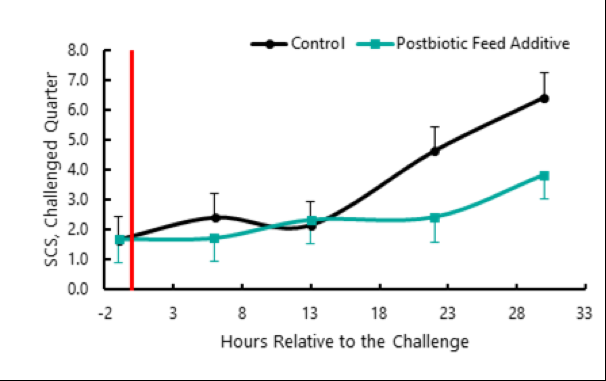The information below has been supplied by dairy marketers and other industry organizations. It has not been edited, verified or endorsed by Hoard’s Dairyman.

How can you boost udder health with nutritional strategies? By incorporating the two management tips listed below.
1.) Implement a nutritious diet to support a cow’s immune system:
The immune system has numerous different components, both pathogen specific and nonspecific, which can reduce or eliminate bacterial invasion of the mammary gland. Nutrition can impact these components in a variety of ways, either supporting or impairing immune function. First, immune cells require specific nutrients, like selenium, copper, zinc, calcium, and vitamins (e.g., vit A, D, and E), and when cows are fed a diet lacking them, this can impair their defenses, all the while still providing proper nourishment for other important functions, such as milk and components production. So, while a diet might support substantial milk production, at the same time, the risk of mastitis can increase due to deficient immune function.
Also, proper nutrition can reduce the rate of metabolic conditions (e.g., fat cow syndrome, ketosis, hypocalcemia) that suppress immunity, helping reduce the risk of mastitis. Finally, nutrition can go beyond meeting requirements, and boost immune function beyond average.
2.) Incorporate a postbiotic feed additive to have a positive effect on udder health:
Ultimately, the goal is to feed the immune system in a way that helps maintain udder health. Incorporating key micronutrients is crucial and impactful. However, we can go a step beyond and incorporate feed additives as supplements to get additional beneficial effects. This is where a postbiotic feed additive comes in. Research has shown the direct benefits of feeding a postbiotic feed additive to dairy cows on their udder health.
Promising results showing reduced mastitis incidence and lower somatic cells scores from use of postbiotic feed additives, specifically a Saccharomyces cerevisiae fermentation product (SCFP), were first reported by Dr. Jim Ferguson (U Penn Vet School) in 2018. To better understand their mechanism of action, Dr. Juan Loor conducted the 2021 University of Illinois trial to evaluate the impact of SCFP postbiotic, during a case of clinical mastitis. Cows were either fed a control diet or a diet supplemented with a SCFP postbiotic additive. They were then infected in the right rear quarter with 2500 CFU of Streptococcus uberis, a common environmental mastitis pathogen. After 36 hours udder tissue samples were collected, and antibiotic treatment started. At the end of the challenge (36 hours post infection), the somatic cell count of the infected quarter was four-fold greater in control cows compared to those that consumed the postbiotic feed additive. This was due to greater pathogen killing capacities of their immune cells, and an increase resistance to damage of their udder tissue compared to control cows. These boosted defenses allowed postbiotic fed cows to maintain higher feed intake and milk yield both during the challenge and in the month following it.

-------
Nutritional strategies to boost udder health, such as incorporating a postbiotic feed additive, will have great effects on reproduction, as well as gut, feet, and respiratory health. By incorporating the management tips listed above, you can have a beneficial impact on your performance, production, and profitability.











